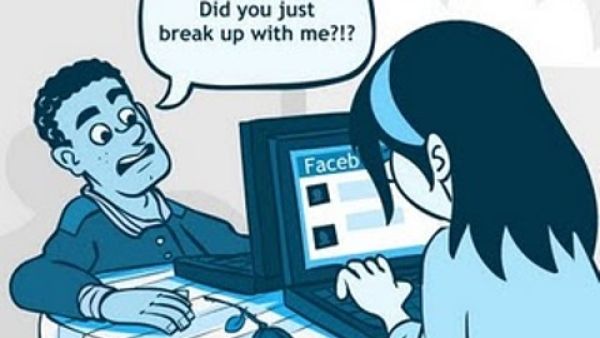Over the past few weeks, several Gulf News readers have spoken about the problems of faltering relationships. Most of the stories had common elements — suspicion, obsession and victimisation.
They were worrying experiences that compelled us to do this special community-based report that looks at aspects of obsessive relationships and help that people can seek. The identities of some of the readers have been changed to protect them.
We've all got secrets. But how easy is it to hide them? Looking at how technology has evolved, your secrets may not be as well-kept as you believe
E-mails, global positioning systems on phones, or even Facebook updates leave an electronic trail, and suspicious partners are now following these virtual breadcrumbs to verify their suspicions.
Lei Gall (name changed), a Filipina living in Dubai, became suspicious when she observed her husband's renewed interest in looking good.
She said: "His grooming habits changed, such as putting lotion and spraying perfume all over his body, shaving regularly, trimming his fingernails — he is now so vain. He used to come home very late. I had this strange feeling that there is another woman."
Since her husband always kept his phone close, Gall had to wait till late one night before she pulled the phone from under his pillow to find out what was really happening.
"I checked his inbox and sent items. Then I took a picture of each message, as a proof of his infidelity."
Another proof for Gall was when she observed her husband logging on to Facebook at the same time as another user and spend a long time chatting.
"When that girl changed her profile picture on Facebook to a diamond ring, which was posted a day after her birthday, I knew for sure it was a gift from my husband."
A quick scan through her house yielded the payment receipt for the diamond ring. On confronting her husband he denied every allegation.
"To get more proof, I will buy a GPS or a surveillance camera and secretly put it on his wallet to track his whereabouts. Then, I can catch him in the act."
For another Dubai resident, Mimi (name changed) technology furthered her obsession with verifying her partner's loyalty. She told Gulf News that she couldn't forget his past, and while he was not in touch with his ex-girlfriend, she just couldn't shrug it off.
Soon she found herself trying to go through his mobile, and after being repeatedly blocked by its password protection she created a fake e-mail account and pretended to be a girl interested in him. But his answers only pushed her further.
She said: "He answered my e-mails casually and briefly which angered me. I thought: ‘Why would you respond to someone you do not know?'
"I continued messaging him but the part that shattered my heart was when I asked for his mobile number and he provided it without hesitation."
Mimi continued to e-mail him for two years, even though she said he never asked her out or talked about anything sensitive. She eventually confronted him and he told her he knew it was her all along and had just played along. But she refused to believe him.
"I didn't speak to him for a month, but that didn't stop me from prying into his life. I crashed into his place every day and searched. I asked myself what was I doing, but the jealousy was controlling me mercilessly."
Lack of trust
One day while she was searching she said he walked in and caught her. He then gave her his mobiles, pointed to his laptop and told her to open them because he had nothing to hide.
She said: "I felt ashamed, but stupidly I asked him what the password was. He mumbled my name, but I couldn't type it. I couldn't do anything at that moment. All of a sudden I burst into tears because I had no trust in the man I was going to spend the rest of my life with, yet he trusted me."
Their relationship has improved ever since and they are happily married, but Mimi confesses to still checking the caller ID on his phone frequently to keep suspicions at bay.
Self-esteem
The ease with which e-mails and social networking sites allow access to personal communication is making such spying very common.
"I think everyone has gone through their partner's e-mails at some point. It's that internal battle where you know you shouldn't do it, but want to. It is not healthy, but I think it is quite normal nowadays," Tammy Khan, a 22-year-old student, said. "I usually find out a person's password, but if I knew how to hack into accounts, I may have done that, too," she confessed.
Talking about friends who she knows hack into others' Facebook accounts, she said that it is not just a trust issue among young adults, but may have to do with self-esteem.
"You feel that you are not good enough for that person, so they will go behind your back and be with someone else."
By Huda Tabrez, Manuel Almario, Heather Madore








